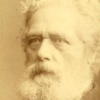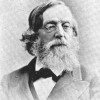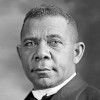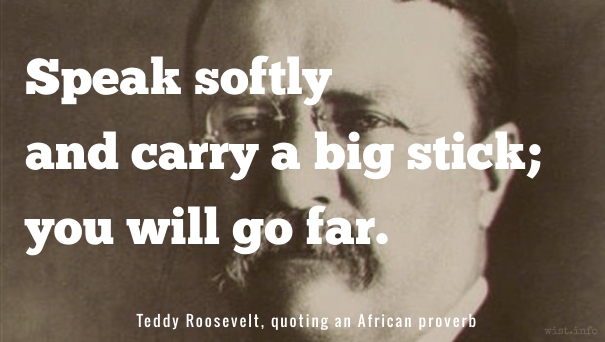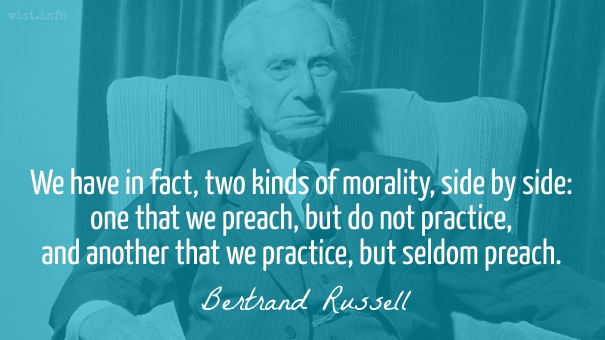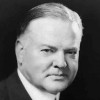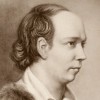There is a fire-fly in the southern clime
Which shineth only when upon the wing;
So it is with the mind: when once we rest,
We darken.Philip James Bailey (1816-1902) English poet, lawyer
Festus, Sc. “A Village Feast – Evening” [Festus] (1839)
(Source)
Usually paraphrased (earliest source (1872)):
The firefly only shines when on the wing.
So is it with the mind -- when once we rest
We darken.
Quotations about:
deeds
Note not all quotations have been tagged, so Search may find additional quotes on this topic.
A little mind is always hurried, by twenty things at once; but a man of sense does but one thing at a time, and resolves to excel in it; for whatever is worth doing at all is worth doing well.
Lord Chesterfield (1694-1773) English statesman, wit [Philip Dormer Stanhope]
Letter to his son, #71 (10 Mar 1746)
(Source)
Next to doing things that deserve to be written, there is nothing that gets a man more credit, or gives him more pleasure, than to write things that deserve to be read.
Lord Chesterfield (1694-1773) English statesman, wit [Philip Dormer Stanhope]
Letter to his son, #44 (1740?)
(Source)
We must be something in order to do something, but we must also do something in order to be something. The best rule, I think, is this: If we find it hard to do good, then let us try to be good. If, on the other hand, we find it hard to be good, then let us try to do good. Being leads to doing, doing leads to being. Yet below both as their common root is faith, — faith in God, in man, in ourselves, in the eternal superiority of right over wrong, truth over error, good over evil, love over all selfishness and all sin.
Do not let your deeds belie your words, lest when you speak in church someone may say to himself, “Why do you not practice what you preach?”
St. Jerome (c. 347-419) Roman Christian priest, theologian, historian, translator [Eusebius Sophronius Hieronymus]
Letter 52, to Nepotian (AD 394)
Alt. trans.: "Do not let your deeds belie your words; lest when you speak in church someone may mentally reply, 'Why do you not practice what you profess?'" [Philip Schaff & Henry Wace (eds.) A Select Library of Nicene and Post-Nicene Fathers of the Christian Church, vol. 6 (1893)]
Good impulses are naught, unless they become good actions.
[Les bons mouvements ne sont rien, s’ils ne deviennent de bonnes actions.]Joseph Joubert (1754-1824) French moralist, philosopher, essayist, poet
Pensées [Thoughts], ch. 5 “Des Passions et des Affections de l’Âme [On the Soul],” ¶ 75 (1850 ed.) [tr. Calvert (1866)]
(Source)
The world cares very little about what a man or woman knows; it is what the man or woman is able to do that the world cares about.
Booker T. Washington (1856-1915) American educator, writer
“Mind and Matter,” Speech, Alabama State Teachers’ Association, Selma (5 Jun 1895)
Washington reused material in various speeches he gave. In an address to the African Methodist Episcopal Zion Church, Boston (30 July 1903), he phrased this: "The world cares very little what you or I know, but it does care a great deal about what you or I do."
I propose good fellowship — good friends all around. No matter what we believe, shake hands and let it go. That is your opinion; this is mine: let us be friends. Science makes friends; religion, superstition, makes enemies. They say: Belief is important. I say: No, actions are important. Judge by deed, not by creed. Good fellowship — good friends — sincere men and women — mutual forbearance, born of mutual respect.
Robert Green Ingersoll (1833-1899) American lawyer, agnostic, orator
“What Must We Do To Be Saved?” sec. 11 (1880)
(Source)
Give me but virtuous actions, and I will not quibble and chicane about the motives.
Lord Chesterfield (1694-1773) English statesman, wit [Philip Dormer Stanhope]
Letter to his son, #161 (5 Sep 1748)
(Source)
I have always been fond of the West African proverb “Speak softly and carry a big stick; you will go far.”
Theodore Roosevelt (1858-1919) American politician, statesman, conservationist, writer, US President (1901-1909)
Letter to Henry L. Sprague (26 Jan 1900)
Full text. This is the first known use by Roosevelt of his future catch phrase. It attained more fame when he used it in a speech at the Minnesota State Fair (2 Sep 1901) (there are transcript variants):
More discussion here:
- "There is a homely adage which runs 'Speak softly and carry a big stick; you will go far.' If the American nation will speak softly and yet build and keep at a pitch of highest training a thoroughly efficient Navy, the Monroe Doctrine will go far."
- "Right here let me make as vigorous a plea as I know how in favor of saying nothing that we do not mean, and of acting without hesitation up to whatever we say. A good many of you are probably acquainted with the old proverb, 'Speak softly and carry a big stick -- you will go far.' If a man continually blusters, if he lacks civility, a big stick will not save him from trouble, and neither will speaking softly avail, if back of the softness there does not lie strength, power. In private life there are few beings more obnoxious than the man who is always loudly boasting, and if the boaster is not prepared to back up his words, his position becomes absolutely contemptible. So it is with the nation. It is both foolish and undignified to indulge in undue self-glorification, and, above all, in loose-tongued denunciation of other peoples. Whenever on any point we come in contact with a foreign power, I hope that we shall always strive to speak courteously and respectfully of that foreign power."
‘What do you fear, lady?’ he asked.
‘A cage,’ she said. ‘To stay behind bars, until use and old age accept them, and all chance of doing great deeds is gone beyond recall or desire.’
J.R.R. Tolkien (1892-1973) English writer, fabulist, philologist, academic [John Ronald Reuel Tolkien]
The Lord of the Rings, Vol. 3: The Return of the King, Book 5, ch. 2 “The Passing of the Grey Company” [Aragorn and Eowyn] (1955)
(Source)
Actually, we who engage in nonviolent direct action are not the creators of tension. We merely bring to the surface the hidden tension that is already alive. We bring it out in the open, where it can be seen and dealt with. Like a boil that can never be cured so long as it is covered up but must be opened with all its ugliness to the natural medicines of air and light, injustice must be exposed, with all the tension its exposure creates, to the light of human conscience and the air of national opinion before it can be cured.
Martin Luther King, Jr. (1929-1968) American clergyman, civil rights leader, social activist, preacher
Letter from Birmingham Jail (16 Apr 1963)
(Source)
There are large parts of the Christian ethic which are universally admitted to be too good for this wicked world. We have in fact, two kinds of morality, side by side: one that we preach, but do not practice, and another that we practice, but seldom preach.
ULYSSES: Those scraps are good deeds past, which are devoured
As fast as they are made, forgot as soon
As done. Perseverance, dear my lord,
Keeps honor bright. To have done is to hang
Quite out of fashion like a rusty mail
In monumental mock’ry.William Shakespeare (1564-1616) English dramatist and poet
Troilus and Cressida, Act 3, sc. 3, l. 153ff (3.3.153-158) (1602)
(Source)
It is the greatest of all mistakes to do nothing because you can only do little. Do what you can.
Sydney Smith (1771-1845) English clergyman, essayist, wit
Elementary Sketches of Moral Philosophy, Lecture 19 “On the Conduct of the Understanding, Part 2” (1849)
(Source)
Based on a lecture in a series given at the Royal Institution (1804-1806).
I have ever thought religion a concern purely between our god and our consciences, for which we were accountable to him, and not to the priests. I never told my own religion, nor scrutinised that of another. I never attempted to make a convert, nor wished to change another’s creed. I have ever judged of the religion of others by their lives: and by this test, my dear Madam, I have been satisfied yours must be an excellent one, to have produced a life of such exemplary virtue and correctness. For it is in our lives, and not from our words, that our religion must be read. By the same test the world must judge me.
Thomas Jefferson (1743-1826) American political philosopher, polymath, statesman, US President (1801-09)
Letter to Margaret Bayard Smith (6 Aug 1816)
(Source)
When people come to see us, we foolishly prattle, lest we be inhospitable. But things said for conversation are chalk eggs. Don’t say things. What you are stands over you the while, and thunders so that I cannot hear what you say to the contrary.
Ralph Waldo Emerson (1803-1882) American essayist, lecturer, poet
“Social Aims,” lecture, Boston (1864-12-04), Letters and Social Aims (1875)
(Source)
Likely source of the abridgments more commonly found *in:More discussion of this quotation: What You Do Speaks So Loudly that I Cannot Hear What You Say – Quote Investigator
- "What you do speaks so loudly that I cannot hear what you say."
- "What you are speaks so loudly that I cannot hear what you say."
- "Who you are speaks so loudly that I cannot hear what you say."
- "What we are speaks louder than what we say." [John F Kennedy, Q&A, Salt Lake City (23 Sep 1960), and in numerous subsequent speeches]
After all, when the day of judgement comes we shall be examined about what we have done, not about what we have read; whether we have lived conscientiously, not whether we have turned fine phrases.
[Certe adveniente die judicii, non quæretur a nobis quid legimus, sed quid fecimus; nec quam bene diximus, sed quam religiose viximus.]
Thomas à Kempis (c. 1380-1471) German-Dutch priest, author
The Imitation of Christ [De Imitatione Christi], Book 1, ch. 3, v. 5 (1.3.5) (c. 1418-27) [tr. Knox-Oakley (1959)]
(Source)
(Source (Latin)). Alternate translations:
At the day of judgment it shall not be asked of us what we have read, but what we have done: nor how well we have said, but how religiously we have lived.
[tr. Whitford/Raynal (1530/1871)]
On the day of judgment we will not be asked what we have read, but what we have done; not how well we have discoursed, but how religiously we have lived.
[tr. Whitford/Gardiner (1530/1955)]
Assuredly at the day of judgment we shall not be examined how many bookes we have read, but how many good workes we have done; not how rhetorically we have spoken, but how religiously we have lived.
[tr. Page (1639), 1.3.22]
A Day of Judgment there will come, where in Measures will be taken very different form ours; when the Enquiry, upon which our Affairs must all turn, will be, not how much we have Heard or Read, but how much we have done; not how Eloquent our Expressions, but how Pure and Devout our Lives; how much our Manners, not our Capacity or Breeding, our Wit or Rhetorick, distinguished us from common Men.
[tr. Stanhope (1696; 1706 ed.)]
Assuredly, in the approaching day of universal judgment, it will not be enquired what we have read, but what we have done; not how eloquently we have spoken, but how holily we have lived.
[tr. Payne (1803)]
Truly, at the day of judgment we shall not be examined what we have read, but what we have done; not how well we have spoken, but how religiously we have lived.
[ed. Parker (1841)]
Assuredly, in the approaching day of judgment, it will not be inquired of us what we have read, but what we have done; not how eloquently we have spoken, but how holily we have lived.
[tr. Dibdin (1851)]
Verily, when the day of judgment comes, we shall not be asked what we have read, but what we have done; nor how well we have spoken, but how religiously we have lived.
[ed. Bagster (1860)]
Of a surety, at the Day of Judgment it will be demanded of us, not what we have read, but what we have done; not how well we have spoken, but how holily we have lived.
[tr. Benham (1874)]
Truly, at the day of judgment we shall not be examined as to what we have read, but as to what we have done; not as to how well we have spoken, but as to how religiously we have lived.
[tr. Anon. (1901)]
On the day of judgment, surely, we shall not be asked what we have read but what we have done; not how well we have spoken but how well we have lived.
[tr. Croft/Bolton (1940)]
Surely on coming to the day of judgment we shall not be asked what we have read but what we have done: not how well we talked but how religiously we lived.
[tr. Daplyn (1952)]
At the Day of Judgement, we shall not be asked what we have read, but what we have done; not how eloquently we have spoken, but how holily we have lived.
[tr. Sherley-Price (1952)]
When the day of judgment comes, we shall not be asked what we have read, but what we have done, not if we made fine speeches, but if we lived religious lives.
[tr. Knott (1962)]
When the day of judgement comes we will be asked not what books we read, but what deeds we did, not how well we spoke, but how religiously we lived.
[tr. Rooney (1979)]
Surely, when the day of judgment comes we shall not be asked what we have read but what we have done, not how well we have spoken but how devoutly we have lived.
[tr. Creasy (1989)]
I long to accomplish a great and noble task; but it is my chief duty and joy to accomplish humble tasks as though they were great and noble. It is my service to think how I can best fulfil the demands that each day makes upon me, and to rejoice that others can do what I cannot. Green, the historian, tells us that the world is moved along, not only by the mighty shoves of its heroes, but also by the aggregate of the tiny pushes of each honest worker, and that thought alone suffices to guide me in this dark world and wide. I love the good that others do; for their activity is an assurance that whether I can help or not, the true and the good will stand sure.
Helen Keller (1880-1968) American author and lecturer
“Optimism,” Part 1 (1903)
(Source)
Often paraphrased as: "I long to accomplish a great and noble task, but it is my chief duty to accomplish humble tasks as though they were great and noble. The world is moved along, not only by the mighty shoves of its heroes, but also by the aggregate of the tiny pushes of each honest worker."
VOLUMNIA: Action is eloquence.
William Shakespeare (1564-1616) English dramatist and poet
Coriolanus, Act 3, sc. 2, l. 95 (3.2.95) (c. 1608)
(Source)
It is from the numberless diverse acts of courage and belief that human history is shaped. Each time a man (or a woman) stands up for an ideal, or acts to improve the lot of others, or strikes out against injustice, he (or she) sends a tiny ripple of hope, and crossing each other from a million different centers of energy and daring, those ripples build a current which can sweep down the mightiest walls of oppression and resistance.
Robert Francis Kennedy (1925-1968) American politician
“Day of Affirmation,” address, University of Capetown, South Africa (6 Jun 1966)
(Source)
Inscribed on the RFK gravesite at Arlington National Cemetery as "It is from numberless diverse acts of courage and belief that human history is shaped. Each time a man stands up for an ideal, or acts to improve the lot of others, or strikes out against injustice, he sends forth a tiny ripple of hope, and crossing each other from a million different centers of energy and daring those ripples build a current which can sweep down the mightiest walls of oppression and injustice."
Ours is a practical people, to whom ideals furnish the theory of political action, upon which they want not only firm assurance, but also effective practice. They want programmes, but they want action to flow from them. They want constructive common sense. They want the development of the common will, not the views of a single individual. They are beginning to realize that words without action are the assassins of idealism.
We live in deeds, not years:
In thoughts, not breaths;
In feelings, not in figures on a dial.
We should count time by heart-throbs.
He most lives
Who thinks most, feels the noblest, acts the best.Philip James Bailey (1816-1902) English poet, lawyer
Festus, Sc. “A Country Town – Market-place – Noon” [Festus] (1839)
(Source)
Often misattributed to Aristotle.

